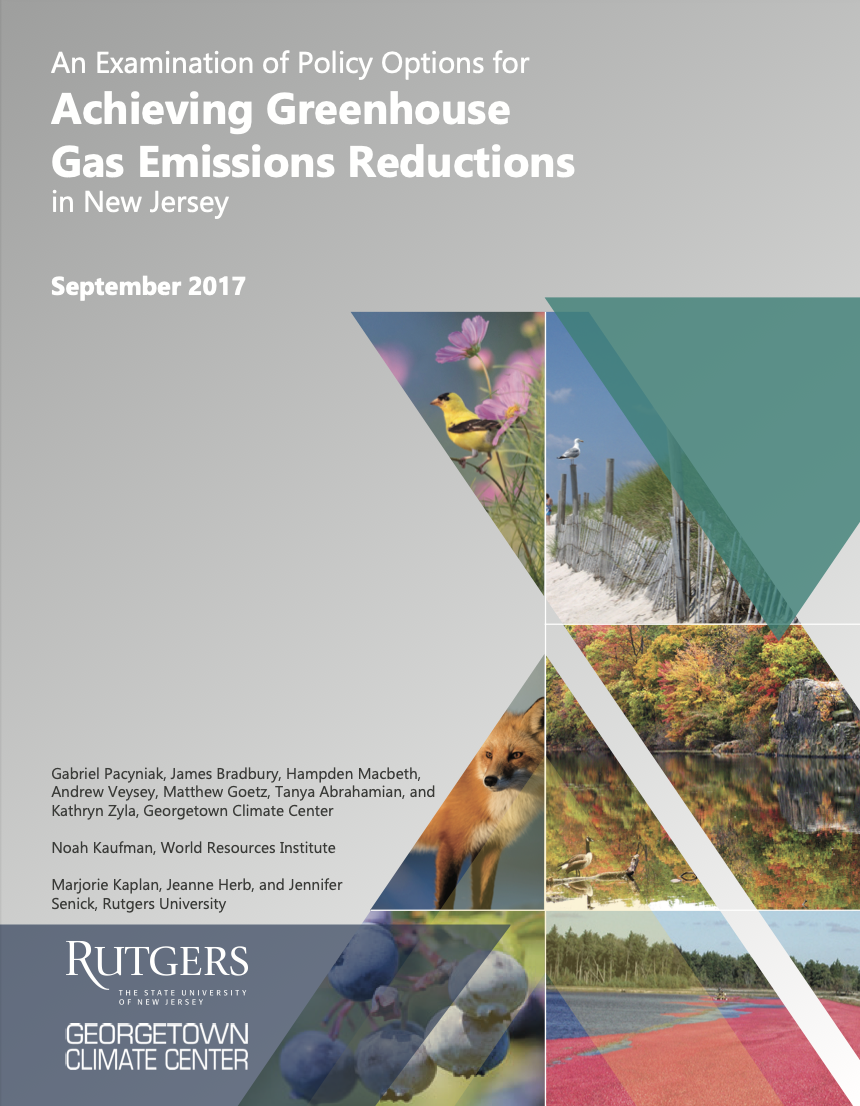This report explores policy options for the State of New Jersey in advancing statutory limits to reduce greenhouse gas emissions. Recognizing that it has been a decade since the passage of the New Jersey Global Warming Response Act (N.J.S.A. 26:2C-37), this report examines five critical issues with respect to attainment of the statewide limits:
Whether the limits are still appropriate limits reflecting scientific consensus;
The status of New Jersey’s current greenhouse gas emissions in relation to such limits;
The status of New Jersey’s legal and policy framework for addressing greenhouse gas emissions;
Leading mitigation policies in other states that could be applicable to New Jersey; and
What policies offer opportunities to improve conditions in communities that currently bear disproportionate environmental burdens in New Jersey that are likely to be exacerbated by a changing climate.
Whether the limits are still appropriate limits reflecting scientific consensus;
The status of New Jersey’s current greenhouse gas emissions in relation to such limits;
The status of New Jersey’s legal and policy framework for addressing greenhouse gas emissions;
Leading mitigation policies in other states that could be applicable to New Jersey; and
What policies offer opportunities to improve conditions in communities that currently bear disproportionate environmental burdens in New Jersey that are likely to be exacerbated by a changing climate.
Note: This report and our work on this project is made possible with support from The Fund for New Jersey, Energy Foundation, and Rutgers Climate Institute.
